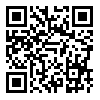BibTeX | RIS | EndNote | Medlars | ProCite | Reference Manager | RefWorks
Send citation to:
URL: http://hakim.tums.ac.ir/article-1-450-en.html
Introduction: The objective of this study is to assess the medicines and materials dispensed by medicinal herbs sellers in Tehran for treatment of drug addiction.
Methods: This study consisted of a qualitative study and a chemical laboratory analysis. In-depth interviews with a sample consisting of 52 medicinal herbs sellers from 22 zones of Tehran’s Municipality and 32 drug dependents or their family members were performed, and thin layer chromatography was done for 55 specimens from handmade anonymous materials sold by medicinal herbs sellers for treatment of addiction.
Results: Eighty five percent of the studied herb sellers were active in treatment of addiction. The prescribed herbs consisted of Lavandula, Valerian, Citrus, Bishop’s weed fruit, and sweet balm. Although only 20% of the herb sellers disclosed dispensing chemical compounds as well as herbals, but all of the analyzed specimens included at least one chemical. Ninety one percent of the specimens contained diphenoxylate and 58% included at least one opioid. The cost of treatment ranged from 100 thousand to two million Iranian Rials per patient. Seventy five percent of addicts judged the dispensed medicines and material as either ineffective or addictive.
Conclusion: Widespread and active involvement of herb sellers in prescription and selling of handmade chemical compounds for treatment of addiction, despite its illegality, and the large public demand for such medicines pose a serious challenge for the concerned policymakers. Scientific approach to herbal medicine, supervision of Ministry of Health and Medical Education on their production, licensing their sale, development and application of supervisory regulations, systematic training of those involved in production, prescription, and sale of herbal medicines, and public awareness rising are recommended.
Hakim Research Journal 2008 11(3): 11- 19.
| Rights and permissions | |
 |
This work is licensed under a Creative Commons Attribution-NonCommercial 4.0 International License. |



